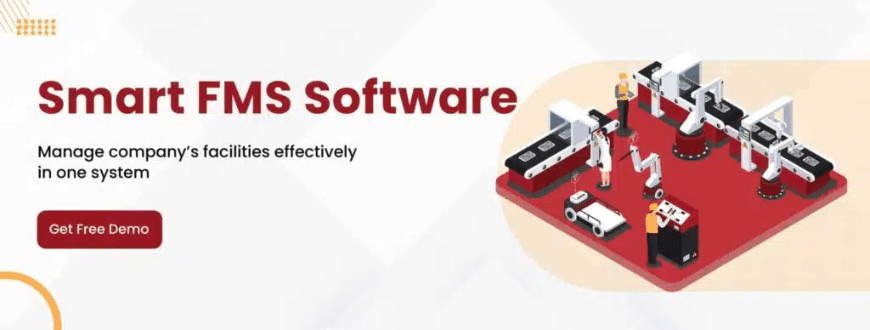The physical assets of a company, such as its buildings, plants, equipment, grounds, HVAC, IT, and lighting, are managed by facility managers. A facility manager’s duties could include some non-physical duties including security, safety, and regulatory compliance. The facility manager serves as the principal coordinator of all activities related to facilities management within a company.
In order to accomplish their main goals, they manage the strategic planning for these operations and collaborate with other departments. With the ultimate goals of minimizing waste, boosting efficiency, and assuring safety, common facility manager duties include maintenance, cleaning, enhancement, and business continuity.
Facilities managers can assign work orders to teams depending on technician availability and the priority of the work order with the aid of a facilities management work order system. The time it takes to complete work orders is also reduced when information about previous fixes is stored in the system.
It also offers a great way to report employee and asset productivity. Now you know how effective a facility management system can be for your company. There is one facility management system you can use. Hash FMS Software can monitor, manage, and analyze all operational data relating to your company’s facilities on a centralized system to obtain precise and comprehensive information and prevent facility damage. It’s a smart digital solution to effectively manage your company’s facilities.
Why is a Facility Manager Important?

Productivity
There are many facility-related problems, mistakes, and mishaps that can completely halt productivity for any number of employees in an office. From busted pipes to damaged computers. When dealing with facilities-related difficulties, there isn’t a sufficient reporting system or chain of command.
This not only affects the employees who experience the issue directly but also impacts their colleagues, subordinates, counterparts, and supervisors. Even minor problems like a broken office chair that remains unfixed for a couple of weeks due to administrative delays can cause disruptions and chaos throughout the office. However, when companies give facility management the attention it deserves, it becomes simpler to get through these inescapable functional breaks and resume output as quickly as feasible.
An office that performs effectively structurally is better equipped to function properly in terms of work output. Even though this is a big advantage of implementing facility management strategies, it’s not the only way that effective facility, space, and physical asset management can increase the prevalence of efficient operations. This is where the facility manager comes to the rescue.
Making sure the staff, workers, and residents can efficiently carry out their job obligations is their primary goal. This entails ensuring that the area is tidy, organized, and prepared for use. Additionally, it indicates that machinery, tools, and technology operate effectively when required.
Also read: 4 Significant Benefits of Using Project Management Software
Comfort and safety
Your company needs to have policies in place to safeguard all of its staff, clients, and customers from harm. Your facilities manager will typically oversee this procedure. To lessen the dangers of workplace hazards, they will conduct risk assessments, and establish, and enforce health and safety procedures.
They will also manage any crises that arise on-site and keep an eye on your processes to make sure they are constantly current. Facility managers assist your company in adhering to health and safety regulations by doing this. To lower the likelihood of workplace risks, a qualified facilities manager will also conduct routine health and safety assessments.
These consist of fire safety, gas, and heating services, and electrical inspections. It is much preferable to tackle such situations proactively rather than reactively, where procedures are implemented only after an incident has occurred.
Several Standard Operating Procedures (SOPs) would be put in place as part of a proactive approach to facilities management in order to prevent confusion when something happens. Regular health and safety audits will reduce accident incidents and ensure compliance with current safety laws, even if risk cannot be completely removed in every workplace.
These programs will promote a culture of health and safety at your place of employment. Your staff members will feel more at ease, enabling them to give their full attention to their tasks without worrying about potential threats.
Profitability
A creative operational strategy may be required in certain circumstances to improve the organization as a whole. The ideal example is to incorporate automation and facilities management software into your approach. Facility managers examine how doing so can make facilities management a profitable department and how improved client interactions can result in higher sales.
With the help of said facility management work order system. Treating your buildings as larger assets will make it simpler to spot significant opportunities, which will improve the customer experience.
Every facility under your management offers a chance to help with overarching corporate goals. You may increase brand uptime, which prioritizes cleanliness, atmosphere, and customer service, by utilizing software and automation. This will also positively affect corporate wellness.
Instead of trying to save costs, you should consider performing preventative maintenance and making wise upgrades that will improve the in-store experience and potentially increase sales. Reviewing the company’s spending from prior years may discover hidden expenses preventing your company from reaching its goals.
Your sites will be more coherent, safer, and easier to manage, and you will be able to increase the efficiency of each money you spend if you can identify assets, locations, or contractors that utilize more budget than you had originally planned. Therefore, facility managers achieve profitability for the company.
Scalability
Facility managers need to consider scalability for capacity and services, as changes in capacity are inevitable in business. Preparing for expansion and increased labor is crucial, whether through a self-managed program or a third-party vendor. It’s important to increase program capacity early to handle wear and tear and unforeseen events.
Weather-related incidents and health concerns can result in extra work, which can jeopardize client confidence if not handled properly. During the consolidation process, it is important to prioritize flexibility and repurpose teams to manage any demands that may arise.
At the same time, it is crucial to focus on expanding capacity while developing the facility maintenance program. The facility manager can respond to abrupt increases in demand, allowing focus on helping the next client in the meantime.
Filling in service gaps for facilities is a type of insurance in and of itself. Make sure your company can manage any interruptions to your facilities—as long as they don’t last too long. Your program needs to be based on extensive knowledge. Always budget for essential needs like electrical, HVAC, and plumbing work.
But keep any blind spots in mind as well. Such as, do you possess the skills necessary to conduct thorough site inspections for new stores? Do you keep an eye on the health of your portfolio’s assets? Are your most vulnerable areas equipped to handle catastrophe recovery?
Additionally, client expectations are evolving. The competitive landscape will continue to change as a result of innovations. People will no longer interact with stores in the same way as a result.
Also read: Why is It Important to Use Financial Software in Your Business?
Sustainability
Facility manager in the sustainability aspect works to minimize, or even eliminate, the environmental impact of each structure. This generally entails a number of adjustments to the way things are done on a daily basis as well as changes to the building’s construction. Using a facility management work order system is one option to consider as an alternative to changing the architecture-identified ways.
Environmentally friendly procedures and technology could improve both facility operations and the environment developed, put into action, and monitor sustainability measures, enhancing them as necessary. You can see the repercussions of sustainable facility management in structures, people, and organizations.
As we’ve already seen, productivity and well-being are enhanced when the facility manager puts the employees first. People may miss four fewer days of work per year if their workplace is in good condition and has adequate natural light, ventilation, and temperature.
However, a facility manager is an important ally in keeping talent in more ways than one. When employees are happy at work, they are 18% more likely to stay with their employer and 30% more inclined to choose them over competitors.
The Harvard Business Review reports that 66% of individuals surveyed consider an organization’s focus on health and well-being as a critical factor when deciding whether to take a new job or remain with their current employer for an extended period. This leads us to the conclusion that sustainability in facility managers helps to both attract and retain talent.
In this context, utilizing tools can be instrumental for organizations to gauge employee satisfaction and well-being, thereby aligning their workplace practices with the preferences of their workforce. Such proactive measures, informed by direct feedback, can further enhance an organization’s appeal to both current and potential employees.
It is something that workers think about while they are seeking a job or choosing between two positions. Statistics show that it is becoming more prevalent as millennials make up the majority of the working population.
How Facility Management Systems Can Help

Facility Management Work Order Improves Efficiency
Effectively managed facilities can significantly enhance a company’s efficiency. When all the facilities are managed well, there are fewer barriers to getting work done. With everything in place, employees can operate more efficiently since they don’t have to spend time searching for things as they are aware of the storage locations.
Additionally, it enables you to recognize and anticipate issues before they occur. Such as running out of toilet paper rolls or malfunctioning equipment, and it enables you to address the issue as soon as possible. By submitting electronic work orders produced by facility management software, facility managers are also expediting facility and maintenance operations.
By eliminating paperwork orders, all facility and maintenance tasks become more visible, which boosts team productivity and efficiency. Another thing is that communication is essential for success. Having effective communication among team members, across departments, and with outside vendors is a crucial role for a facility manager.
They have to always be willing to listen to the concerns of their team members by responding to any inquiries the team may have. Facility management work order systems help the facility managers make sure to keep everyone informed of any changes that are occurring inside your facilities or with your facility processes.
Financial control
For cost savings, having effectively managed facilities is crucial. Maintaining your property and equipment properly will help you save a lot of money. How? By reducing the frequency of maintenance problems. Additionally, since you can deal with issues before they develop, you may concentrate more on prevention than cure.
To increase a company’s productivity and efficiency, proper facility management is essential. It guarantees a more economical working approach inside the facility. By having the necessary resources close at hand, performing planned preventative maintenance on assets, for instance, lowers the amount of money spent on repairs.
The same procedure, on the other hand, provides relevant data on trends, opportunities, and issues. Which a facility manager needs in order to make effective judgments and allows them to justify any future actions that need to be done.
As a result, the facility manager must devote a portion of their workday to learning the accounting systems in use. In order to comply with legal obligations, manage assets and budgets effectively, and generate financial data. Which will definitely be a lot easier with a facility management system.
Also read: How Tech Startups Control Finance with ERP Software in Singapore?
Accurate reports and data
The main balancing act for the facility team is to maximize the operational output of your facilities and physical assets while also decreasing operating and capital expenditures. A facility management work order system that delivers data visualization and real-time reporting is therefore very helpful.
Building administrators and finance departments are typically the sources facility managers turn to for information on operational budgets and upcoming capital expenditures. In order to demonstrate efficiency, every facility manager should become an expert in extracting data from functional operations.
After a building or infrastructure is put to use, it begins to degrade. There are five stages of asset replacement that correspond to the gradual deterioration of a building, which occurs over time. Those stages are:
- Prenatal: less than one year
- Childhood: 1–16 years
- Adolescence: 17–29 years
- Adulthood: 30–49 years
- Old Age: 50-plus years
Facility managers need to be aware of when each phase will start to experience more significant repair and maintenance concerns. By gathering information on equipment life cycles and repair plans in comparison to industry norms and benchmarks, it is possible to considerably increase the effectiveness of your capital planning. Data is crucial in this regard since it enables facility managers to decide the best strategy for encouraging supervisors and technicians to maintain a successful preventative maintenance program.
Make a better business decision
Facility managers are setting both long-term and short-term goals for your company. They will then implement strategies and procedures to aid your company in achieving those objectives. For instance, if your facility manager establishes a goal to boost production, they can mandate that your staff members finish a certain number of files each day.
They might then utilize software to keep track of the files for your employees. Another thing, a significant issue with facility management is its lack of openness. Residential real estate, building maintenance, and space usage all belong in various baskets. Up until today, the opposite has taken place.
The underlying data makes the facility management system more aware of how different areas of a facility interact with one another and of any prevailing trends. Data can also be the key to making a better business decision for a facility manager. Proactive maintenance is becoming more prevalent under astute facilities managers.
Because of the development of IoT, machine learning, and smart monitoring technologies, building managers can now use real-time data to boost productivity and efficiency. Data takes the guesswork out of managing and maintaining physical assets. Allowing you to make better decisions about how to operate your buildings and how to best allocate resources to minimize disruptions to your business.
Increase employee wellbeing
In terms of facilities, wellness is linked to the workplace through a variety of elements. Including air quality, water quality, temperature and humidity control, security, cleaning supplies, options for nutritious food, lighting, interior design, and designated spaces for physical activity.
The benefits of wellness promotion extend beyond the individual worker; a company with happy, healthy workers is a productive place to work, with fewer incidences of absenteeism and lower production expenses. From a facility manager’s standpoint, the current redefining of the workplace environment and an emphasis on well-being go hand in hand.
A healthy, contented, and productive workforce depends on how employees perceive their surroundings. From physical space and amenities to technology and operational efficiencies. Employee morale is significantly impacted by having well-managed facilities. Which will be more efficient with a facility management system.
They are able to concentrate better, feel proud of their workplace, and like working for the company because of it. Additionally, it reduces sick days, which raises staff productivity. When facilities are effectively managed, employees are happier, more motivated, and more productive, which benefits the company.
Conclusion
Overall, facility managers’ roles are crucial for workplace efficiency. Because it is a fast and efficient method of overseeing and monitoring important data concerning the functioning and upkeep of the company, the absence of these services and the expertise of a facilities manager may result in more downtime due to maintenance issues, lower employee satisfaction, and reduced productivity.
This, in turn, could result in financial loss and higher maintenance expenses, as operations and systems were not being supervised and managed. This is why facility management is such an important aspect.
Hash Facility Management System offers all the facility managers many benefits. Those benefits are; routine facility maintenance, no more asset loss, the financial report for each asset and facility, and lowering the rate of facility complaints. Download the pricing scheme and try the free demo, you will see all the advantages Hash Facility Management System can give to your company.



































